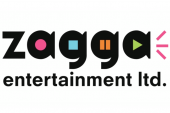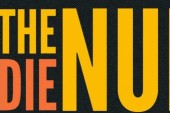
Metric photographed by Ian Ruhter
Last weekend, Metric performed at the annual Montreal music festival Osheaga, in support of the band’s latest release Synthetica. The album, which received glowing reviews from the Telegraph and Spin, has sold well in North America with estimated sales of 100,000. The band self-released Synthetica (and Fantasies, before it) to retain creative control and, perhaps, as important, for a larger chunk of the profits.
In an interview with the Los Angeles Times, Mathieu Drouin, the band’s co-manager, noted that self-releasing an album on iTunes meant making “77 cents on the dollar for every record we sell,” while a record label deal would yield just 22 cents. The band venturing on its own didn’t hurt the success of the last album, Fantasies, which sold a respectable 500,000 copies worldwide, so who wouldn’t want to keep nearly four times as much money per $10 album?
(And this is prior to factoring in the lucrative touring that bands depend on–case in point: Madonna’s latest album, MDNA, did lukewarm with sales of 450,000 in America, but her associated tour is estimating to bring in over $200 million.)
The introduction of new distribution platforms, such as Apple’s iTunes and its app store, is narrowing the barriers between artists and the consumers of their work. Across different fields, we are seeing more people able to share their work and get paid for it from Etsy for crafts to Steam for videogames and Kindle for books.
Distribution can change everything. Look at Toronto’s sizzling independent games industry, which was fuelled in part by the ability of platforms like PSN, Steam, and the Apple app store to get local games to global players. (The other factors, for the curious, were provincial funding, proximity to cultural industries and institutions, and directed community organizing.) Nearly all of the recent critical and commercial successes have been self-published, which means that not only have the titles done well, but more of the money goes to the developers.
The games of Get Set, Mega Run and its follow-up Mega Jump, have accrued a combined 40 million downloads on iOS and Android devices. Superbrothers: Sword and Sworcery, published by Capy Games, sold 350,000 copies on iOS, before then publishing on Steam, which sells games for desktop and laptop computers. (In addition, the lauded soundtrack was sold on self-publishing platform Bandcamp by its composer Jim Guthrie.)
By owning the intellectual property, developers also have the advantage of selling on multiple platforms, such as Drinkbox’s critically-acclaimed Mutant Blobs Attack, which first appeared on the PlayStation Vita portable in February, but will become available on Steam later this month. The move to a popular platform like Steam can be extremely lucrative, with top-selling games racking up sales in the millions.
While self-publishing seems idyllic, there is a very large and real obstacle: in an increasingly crowded market, overcoming the noise to reach your audience is essential. Every seller of work must still find a buyer, regardless of who publishes the work. There are literally over a hundred thousands games on the Apple app store. For every game that is a hit, many will never breakthrough in a meaningful way.
Along with direct access to an audience, part of the deal is to also foster that relationship. Metric had the backing of a record label to gain awareness in the industry, but also toured relentlessly to build a community of listeners. The strongest game developers relate to their players and forge a connection through blogs, forums, social media, and in-person events.
In the end, artists – independent or not – must realize it’s not just their work that consumers desire.
________
Jaime Woo is a Toronto writer and the author of the upcoming book Gaming Grindr. Follow him on Twitter at @jaimewoo.
For more, follow us on Twitter: @torontostandard, and subscribe to our Newsletter.














